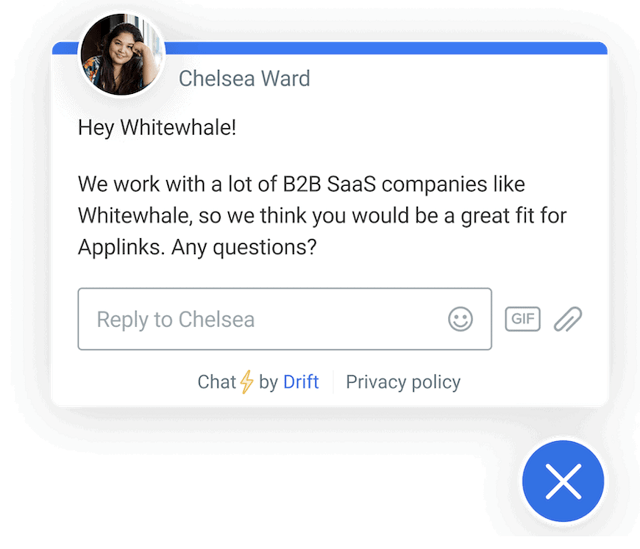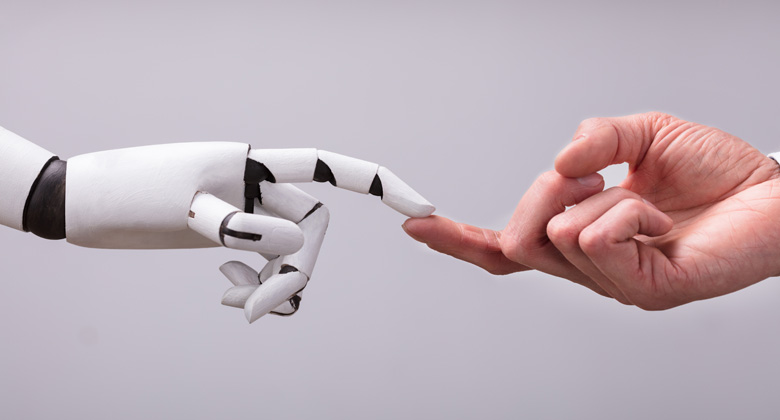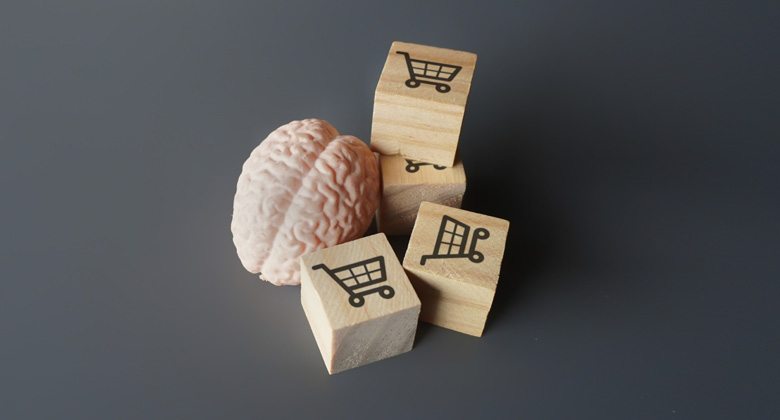How AI In Marketing Has Evolved Over The Years To Provide Ultimate Consumer Engagement
Artificial intelligence offers a new kind of customer experience that’s elevated and more immersive than ever before. When it comes to its impact, AI has had a significant one across many industries, including marketing in particular.
The stats regarding AI make staggering reading! The industry is already worth approximately $200 billion. However, the growth anticipated is massive, with the sector expected to reach a value of $1.8 trillion by 2030.
Furthermore, over 60% of marketers are using AI to support their marketing efforts in some way.
So, what progress has AI in marketing made over the years? How has it evolved, and what does the future look like in its quest to provide the ultimate consumer engagement?
AI in Marketing
Artificial Intelligence is transforming marketing, bringing new levels of consumer engagement and efficiency.
Personalisation
Say goodbye to generic marketing. With AI, we can now deliver personalised content and offers tailored to each user’s behaviour, preferences, and past interactions.
For example, Amazon uses AI to recommend products based on previous purchases and browsing history, creating a highly personalised shopping experience.
Predictive Analytics
Imagine having a crystal ball for consumer behaviour. AI-powered predictive analytics tools analyse vast amounts of data to forecast future trends and behaviours.
Businesses can use these insights to stay ahead of the competition by anticipating market shifts and consumer needs.
Customer Insights
AI provides deep insights into customer behaviour. Through natural language processing and machine learning, AI can analyse customer feedback, reviews, and social media interactions to gauge sentiment and identify trends.
For instance, sentiment analysis tools can help brands understand how customers feel about their products and services, allowing for more targeted improvements.
Automated Campaigns
AI is revolutionising marketing automation. From email marketing to social media management, AI can automate various aspects of marketing campaigns.
Tools like HubSpot and Marketo enable marketers to automate repetitive tasks, freeing up time for more strategic activities.
Word of warning – Although AI is having a big impact, it’s not a substitute for human effort. AI can enhance marketing, so long as it’s used by someone with experience who knows how to get the most from it and when to rely on good old-fashioned human touch. This is why working with a reputable creative digital agency is a must.
Examples of AI in Marketing
AI as a technology has many different uses in marketing and comes in many forms. Here are just a few examples of how AI is being used for marketing purposes.
Content Creation
Recently, AI has created a lot more content, both for organic advertising and paid.
Would you read an article written by an AI? Would you notice the difference between an article or social media post written by a human and an AI?
In 2016, an AI called Wordsmith churned out 1.5 billion pieces of content alone. Imagine how much of that now exists online?
Such tools can assist in generating articles, social media posts, and even video scripts, though human oversight is crucial to ensure quality and relevance. These platforms still have huge limitations.
Ad Targeting
Targeted ads traditionally used information and data from cookies, but since the online world has become cookieless, many businesses have relied on contextual advertising. However, this sort of ad targeting has benefited from the use of AI.
AI-driven programmatic advertising allows for real-time bidding and precise targeting, making ads more relevant to the user’s current context and behaviour.
Chatbots
Chatbots have become a popular option for many marketers. Chatbots use AI technology to provide customer service to those who need it around the clock.

Brands like Sephora and H&M use chatbots to assist customers with product recommendations and queries, enhancing the overall shopping experience.
Search Engines
Google has implemented machine learning AI to help filter its users’ queries. Rankbrain is software that learns from each user query to apply the right results for users with similar queries.
This has improved the accuracy and relevance of search results, helping marketers understand and target user intent more effectively.
Social Media Monitoring
AI tools can monitor social media platforms for brand mentions, trends, and customer sentiment. This real-time analysis helps marketers respond quickly to customer feedback, capitalise on trending topics, and protect their brand’s reputation.
Advanced sentiment analysis tools can even detect sarcasm and nuanced emotions, giving brands deeper insights into how their audience truly feels.
How AI Has Changed Marketing
AI has revolutionised the marketing landscape, changing how businesses reach and engage their audiences.
Here are a few key ways AI has transformed marketing:
- Data-driven decisions – AI allows marketers to analyse vast amounts of data quickly and accurately. This means improved marketing intelligence, better targeting, personalised campaigns, and insights that drive strategic decisions. For example, Spotify uses AI to analyse listening habits and create personalised playlists for its users, enhancing user engagement.
- Automation of routine tasks – From email marketing to social media management, AI automates repetitive tasks, freeing up marketers to focus on creative and strategic initiatives. This leads to more efficient and effective marketing efforts. Tools like Zapier automate workflows, saving time and reducing the risk of human error.
- Enhanced customer experience – AI-driven tools like chatbots and personalised recommendations improve the customer journey, making interactions smoother and more satisfying. Netflix uses AI to recommend shows and movies based on viewing history, keeping users engaged and coming back for more.
- Improved ROI – AI-driven insights enable businesses to allocate resources more effectively, ensuring they get more value for their money and improving overall campaign performance.
How AI Can Increase Customer Engagement
AI has the power to take customer engagement to new heights. Let’s take a further look at the impact of AI on customer engagement.
Personalised Interactions
AI analyses customer data to deliver highly personalised experience, offers, and recommendations. This makes customers feel valued and understood, increasing their engagement with the brand.
Brands like Starbucks use AI to send personalised offers to customers based on their purchase history and preferences.
Predictive Customer Insights
AI can predict what customers want before they even know it themselves. By anticipating needs and preferences, businesses can engage customers with timely and relevant content, keeping them interested and loyal.
For example, e-commerce platforms use AI to recommend products that customers are likely to buy based on their browsing and purchase history.
24/7 Customer Support
AI-powered chatbots provide round-the-clock support, ensuring customers get help whenever they need it. This immediate assistance improves satisfaction and encourages ongoing engagement, which is why AI should definitely be part of your customer engagement strategy.
Companies like Barclays use AI chatbots to assist customers with banking queries at any time of the day.
Interactive Experiences
AI enables the creation of interactive and immersive experiences, such as virtual reality (VR) and augmented reality (AR) applications. These innovative tools captivate customers and keep them coming back for more.
Brands like IKEA use AR to allow customers to visualise furniture in their homes, enhancing the shopping experience.
The Evolution of AI Marketing Over the Years
AI is considered the fourth industrial revolution after Information Technology appeared in 1969.
In terms of evolution in artificial intelligence, it can be divided into three stages which are:
- Artificial Narrow Intelligence
- Artificial General Intelligence
- Artificial Super Intelligence
The first stage, Artificial Narrow Intelligence, is limited in scope, with intelligence restricted to one functional area. It’s considered weak in AI; however, these ANI systems can easily process data and complete tasks at a significantly quicker pace than any human being can.
For example, spam filters in email services use ANI to detect and filter out unwanted emails.
Artificial General Intelligence is the second stage and covers more than one field. For example, it can solve problems and think abstractly. This stage is mostly on par with adults, and the transition between it and ANI has taken some time to achieve.
AGI systems are still in development but have the potential to understand, learn, and apply knowledge across various domains, much like humans.
This is by no means a small feat to have achieved around 2020, getting us ever closer to Artificial Super Intelligence. This stage surpasses human intelligence across all fields and is likely one that many would be most fearful of.
Despite it taking a while to get from one stage to another, the opportunities that AI can present in life across all aspects are mammoth.
The concept of ASI is still theoretical, but its potential impact on industries, including marketing, is profound.
The Future of AI in Marketing
So, what is the future of AI in marketing? Where is it heading? The evolution of AI in marketing has certainly changed the way businesses market their products and how customers engage with them.
How does AI help in marketing?
It’s apparent that AI is transforming marketing. It provides more insight into the decisions that are made and can assist in many of the daily tasks marketers have to do to successfully advertise what they’re selling.
For example, AI can optimise content distribution by analysing which channels perform best for specific types of content.
How does artificial intelligence affect marketing?
We will likely see more online content generation as AI technology transitions to its next stage. Technology is becoming more aware, and its ability to think beyond statistics is undoubtedly developing. At the same time, marketers must be mindful of how they create content, as there’s a real possibility that Google will punish AI-generated content. Balancing AI-generated content with human creativity and oversight will be crucial to maintaining quality and engagement.
The way businesses collect and analyse data is also set to become more refined. With AI, the quality and granularity of data available to marketers are improving, allowing for more precise targeting and better-informed decision-making. This will enable more accurate customer segmentation and targeted marketing strategies.
Marketing teams and marketers can also benefit from the real-time personalisation that artificial intelligence brings to the table. Tailoring marketing efforts to individual user experiences can significantly boost customer satisfaction and drive higher revenue for businesses. For instance, AI-driven personalisation can improve email open rates and conversion rates by delivering more relevant content.
Artificial intelligence in marketing is constantly advancing, and it’s an industry that’s only going to get bigger and better.
Conclusion: Embracing AI for Better Customer Engagement
Embracing AI in marketing is no longer optional; it’s a necessity for staying competitive in today’s market. AI tools and technologies offer unprecedented opportunities for deeper customer insights, efficient campaign management, and personalised customer experiences. By leveraging AI and marketing, businesses can not only meet but exceed customer expectations, driving engagement and loyalty like never before.
As AI continues to evolve, those who adapt and integrate AI into their marketing strategies will lead the way in customer engagement and business growth. The future of marketing is here, and it’s powered by AI. Are you ready to embrace it?
Subscribe To Us
Contributors
Categories
Subscribe To Us
Contributors
Categories

This website uses cookies so that we can provide you with the best user experience possible. Cookie information is stored in your browser and performs functions such as recognising you when you return to our website and helping our team to understand which sections of the website you find most interesting and useful. Third party cookies such as Google Analytics is also used on this site to provide analytics in order to better understand the user engagement on our site.
You can adjust all of your cookie settings by navigating the tabs on the left hand side.
Strictly Necessary Cookie should be enabled at all times so that we can save your preferences for cookie settings.
If you disable this cookie, we will not be able to save your preferences. This means that every time you visit this website you will need to enable or disable cookies again.







0.Comments